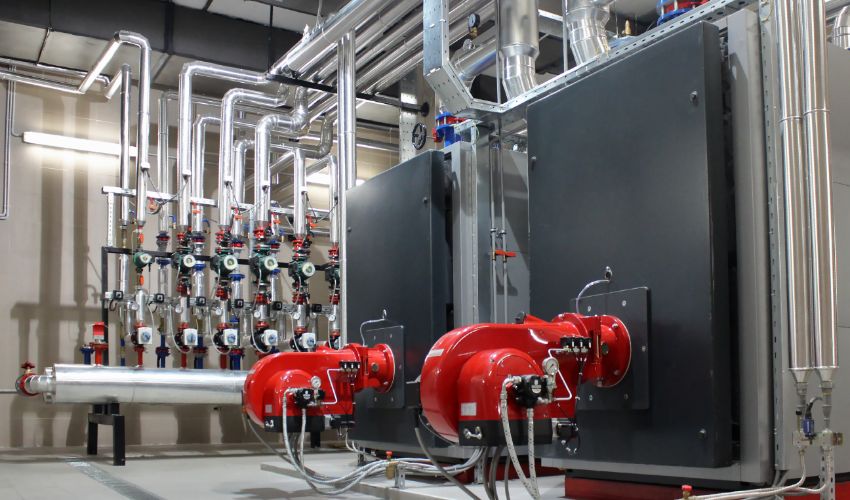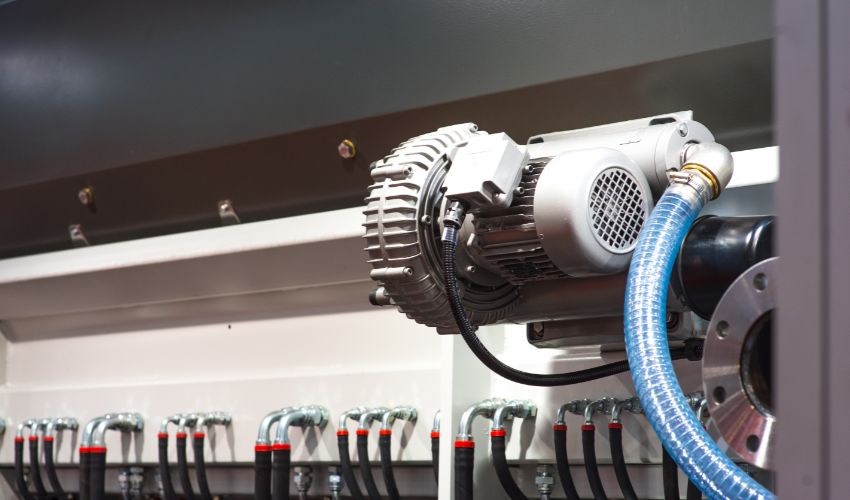Industrial cooling systems are vital for keeping machinery and equipment at optimal temperatures in industrial settings. Without proper cooling, equipment can overheat, causing damage and potentially creating hazardous working conditions for employees.
There are different types of industrial cooling systems available, including air cooling systems, water cooling systems, and refrigeration cooling systems. Air cooling systems are the most common and work by circulating air over the hot equipment. Water cooling systems are more efficient and work by circulating water over the equipment to absorb the heat. Refrigeration cooling systems use refrigerants to absorb heat and are highly efficient but can be costly to install and maintain.
Each type of cooling system has its own benefits and drawbacks. Cooling systems prevent equipment damage and breakdowns, improve efficiency and productivity, and reduce energy costs. However, they can be expensive to install and maintain, may not be suitable for all environments, and require regular maintenance to ensure optimal performance.
When choosing an industrial cooling system, it’s essential to consider the type of equipment, the environment, and your budget. Regular maintenance is necessary to ensure optimal performance and prolong the lifespan of the system. By investing in the right cooling system and maintaining it properly, you can keep your equipment running smoothly and your employees safe.

Types of Industrial Cooling Systems:
- Air Cooling Systems: Air cooling systems are the most common type of cooling system used in industrial settings. They work by circulating air over the hot equipment, which cools it down. These systems are typically simple to install and require minimal maintenance. However, they may not be suitable for environments with high levels of dust or other contaminants.
- Water Cooling Systems: Water cooling systems are another popular type of cooling system. They work by circulating water over the hot equipment, which absorbs the heat and carries it away. These systems are more efficient than air cooling systems and can be used in a wider range of environments. However, they require more maintenance and can be more expensive to install.
- Refrigeration Cooling Systems: Refrigeration cooling systems are typically used in environments where precise temperature control is required, such as in the food and beverage industry. These systems work by using refrigerants to absorb heat and carry it away. They are highly efficient but can be expensive to install and maintain.
Benefits and Drawbacks of Industrial Cooling Systems:
Benefits:
- Prevents equipment damage and breakdowns due to overheating
- Creates a safer work environment for employees
- Increases equipment lifespan
- Improves equipment efficiency and productivity
- Reduces energy costs
Drawbacks:
- Can be expensive to install and maintain
- Requires regular maintenance to ensure optimal performance
- May not be suitable for all environments
FAQs:
What factors should I consider when choosing an industrial cooling system?
You should consider the type of equipment you have, the environment it will be used in, and your budget.
How often should I maintain my industrial cooling system?
Maintenance schedules can vary depending on the type of system and the environment it is used in. It is best to consult with a professional to determine the optimal maintenance schedule for your system.
Can I use an air cooling system in a dusty environment?
Air cooling systems may not be suitable for environments with high levels of dust or other contaminants. A water or refrigeration cooling system may be a better option.
How much does it cost to install an industrial cooling system?
The cost of installation can vary depending on the type of system and the size of the equipment. It is best to consult with a professional for a quote.

Can an industrial cooling system be used for residential cooling?
Industrial cooling systems are typically designed for use in industrial settings and may not be suitable for residential cooling.
Conclusion:
Industrial cooling systems are essential for maintaining optimal temperatures and preventing equipment damage and breakdowns. There are several types of cooling systems available, each with their own benefits and drawbacks. When choosing a system, it is important to consider the type of equipment, the environment it will be used in, and your budget. Regular maintenance is also necessary to ensure optimal performance and extend the lifespan of the system.






















